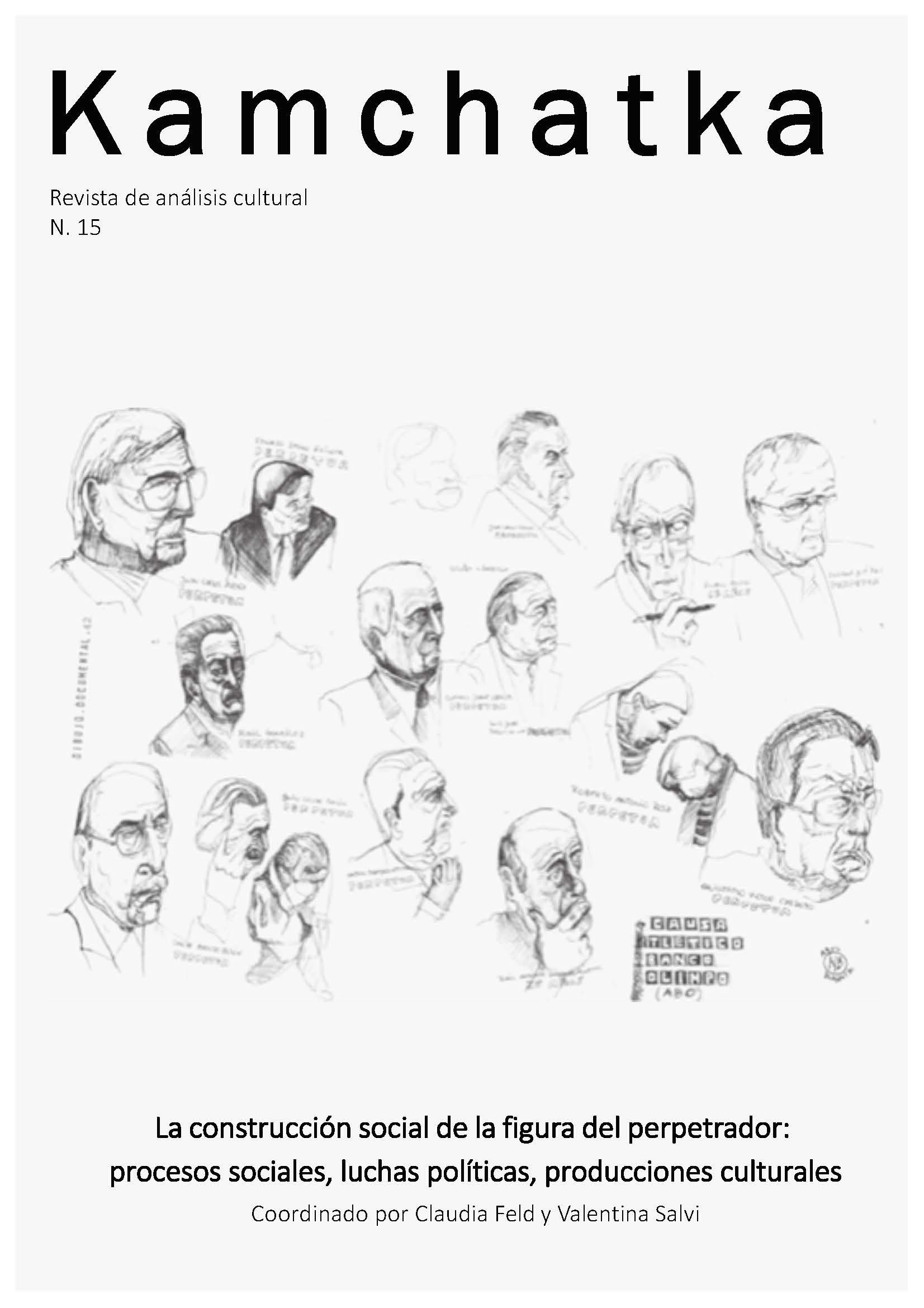Heroes and Criminals: On the Construction of Croatian War Criminals as National Heroes
DOI:
https://doi.org/10.7203/KAM.15.15774Keywords:
Croacia, crímenes de guerra, perpetradores, memoria social, memoria Abstract
Abstract
This paper is a study of three emblematic cases of Croatian officers tried for war crimes in the period of seventeen years (2001-2018) when Croatia's cooperation with the ICTY became effective and trials before domestic courts began. These cases indicate the effect of judicial sentences on the collective memory, the social evolution of the figure of the perpetrator and the process of consolidation of the dominant narrative surrounding Croatians accused and / or convicted of war crimes. The social production of memory in two dimensions is analyzed: 1) the official - the place of the perpetrators in the historical narrative, 2) the public - the reactions of society and media coverage. Also, where appropriate, the individual is offered- the representation of the figure of the perpetrators by themselves. Since war crimes trials focus on the figure of the perpetrator, in the Croatian case they enter into tension with the social memory that revolves around the victims and the victorious defense of the country. The effect of such tension and conflict results in a memory denying crimes and the heroization of the perpetrators.
 Downloads
Downloads
 References
References
Assmann, Jan y Czaplicka, John. “Collective Memory and Cultural Identity”. New German Critique 65 (1995): 125-133.
Barahona de Brito, Alexandra. “Transitional Justice and Memory: Exploring Perspectives”. South European Society and Politics 3 (2010): 359-376.
Bauman, Zygmunt (2016). Vida líquida. Madrid: Paidós.
Doosje, Bertjan et al. “Guilty by Association: When One’s Group Has a Negative History”. Journal of Personality and Social Psychology 75, 4 (1998): 872-886.
Garibian, Sévane. “Le suicide de Praljak, ou les limites de la justice internationale”. Le Temps (12/12/2017): 11
Garibian, Sévane (ed.) (2016). La muerte del verdugo. Reflexiones interdisciplinarias sobre el cadáver de los criminales de masa. Buenos Aires: Miño y Dávila.
Halbwachs, Maurice (1992). On Collective Memory. Chicago: University of Chicago Press.
Hola, B. y Van Wijk, J. “Life After Conviction; an empirical analysis”. Journal of International Criminal Justice 12 (2014): 109-132.
Jelin, Elisabeth (comp.) (2002). Las conmemoraciones: las disputas en las fechas “infelices”. Madrid: Siglo XXI Editores.
Jović, Dejan. “The War That Is Not Allowed to Be Forgotten: Nationalist Discourse on the ‘Homeland War’ (1991-1995) in Contemporary Croatia”. Südosteuropa Mitteilungen 3 (2012): 52-69.
Koren, Snježana (2011). “Korisna prošlost” [Pasado útil]. Cipek, Tihomir (comp.). Kultura sjećanja: 1991. Povijesni lomovi i svladavanje prošlosti [Cultura de la memoria: 1991. Las rupturas históricas y la superación del pasado]. Zagreb: Disput: 123-151.
Kuljić, Todor (2014). Tanatopolitika. Belgrado: Čigoja.
Peskin, Victor y Boduszyński, Mieczysław. “International justice and domestic politics: post-Tuđman Croatia and the international criminal tribunal for the former Yugoslavia”. Europe-Asia Studies 55 (2003): 1117-1142.
Ristić, Katarina. “The Media Negotiations of War Criminals and Their Memoirs: The Emergence of the ‘ICTY Celebrity’”. International Criminal Justice Review 28, 4 (2018): 391-405.
Subotić, Jelena (2009). Hijacked Justice: Dealing with the Past in the Balkans. Ithaca-Londres: Cornell University Press.
Sztompka, Piotr. “Cultural trauma: the other face of social change”. European Journal of Social Theory 3, 4 (2000): 449-466.
Uzelac, A. “Hrvatsko pravosuđe u devedesetima: od državne nezavisnosti do institucionalne krize” [Poder judicial croata en los años noventa: de la independencia a la crisis institucional]. Croatian Political Science Review 38, 2 (2001): 3-41.
Židek, Nikolina (2016). La justicia transicional y la ampliación de la Unión Europea a Croacia y Serbia. Tesis Doctoral. Madrid: Universidad Complutense de Madrid.
Downloads
Published
How to Cite
-
Abstract832
-
Artículo (Español)581
Issue
Section
License
This journal provides an immediate free access to the content on the principle that freely make investigation available to the public, which promotes an increased global knowledge exchange.
Unless otherwise indicated, texts published in this journal are under the license Attribution-NonComercial 4.0 by Creative Commons. These texts may be copied, distributed and publicly communicated whenever the publication’s author and title are quoted and whenever they are not used for commercial purposes. In any case, intellectual property of the articles and its potential economic rights entirely belong to its authors.
The full license can be consulted on https://creativecommons.org/licenses/by-nc/4.0/. We encourage authors to disseminate papers published in Kamchatka. Journal of cultural analysis electronically, in institutional digital repository or in their websites.





